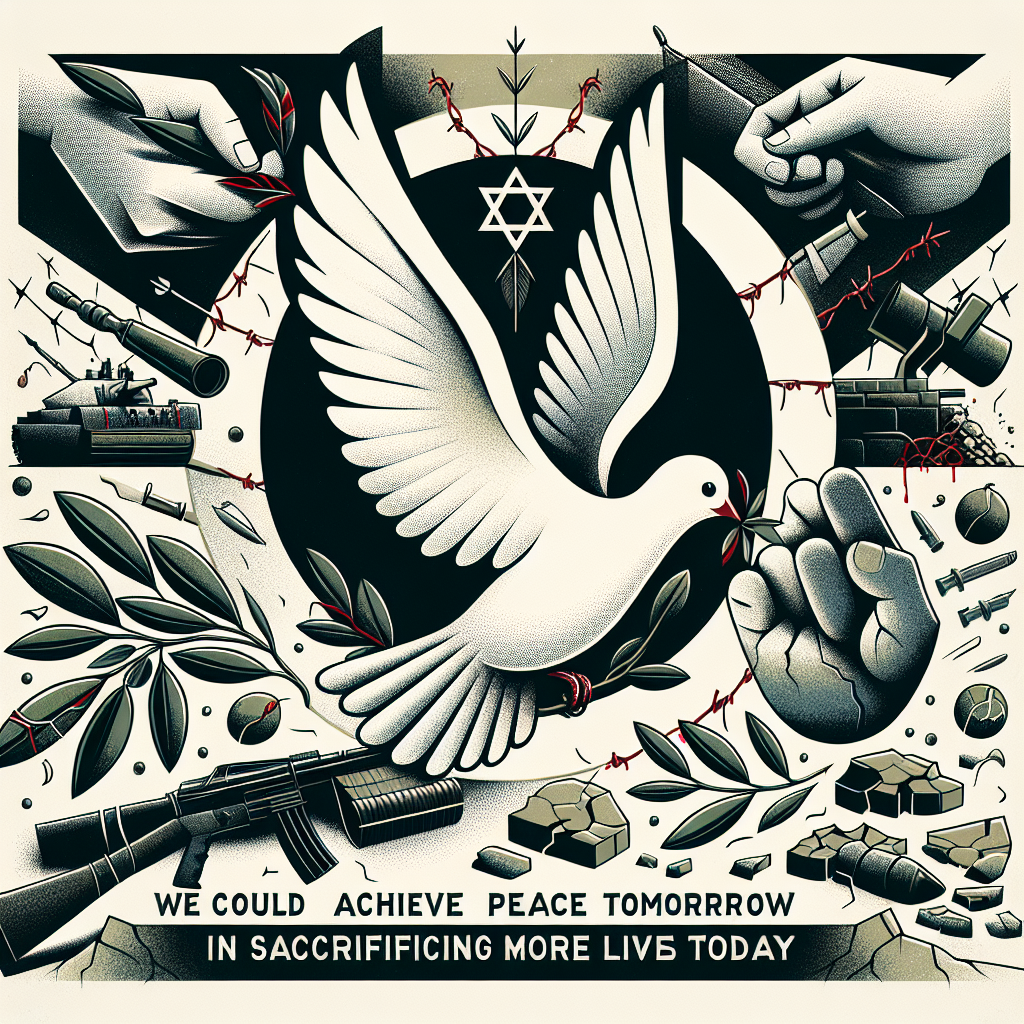The national security doctrine of Israel operates on a paradoxical premise: the belief that peace is attainable through violence and the elimination of opposition. This mentality encapsulates a cycle of aggression, as the promise of peace is perpetually deferred into “tomorrow,” which never arrives. Despite numerous military campaigns aimed at subduing its adversaries, Israel has consistently failed to secure lasting peace. The notion that one can achieve stability through killing is fundamentally flawed; generating more enemies through violence only perpetuates a cycle of conflict. The brutality directed towards groups like Hamas and Hezbollah tends to breed further resistance rather than quashing dissent.
Elimination through violence, akin to colonial strategies employed in North America and Australia, raises ethical concerns, especially when considering the distinct cultural and historical context of the Palestinian people. The indigenous population is not isolated; their existence and struggles resonate throughout the Middle East, tying them to broader regional dynamics. An attempt to assert control through systematic extermination could provoke wider hostilities from neighboring countries, complicating Israel’s military ambitions. This scenario culminates in a precarious situation where perpetual conflict necessitates the annihilation, not just of Palestinians, but potentially of any regional power willing to oppose Israeli policy.
The idea of a “Greater Israel” reflects the far-right perspective that aims to expand Israeli territory, highlighting an undercurrent of aggression that could exacerbate tensions further. Under such a framework, Israel remains trapped in a cyclical conflict, faced with the dual pressures of external opposition from surrounding nations and internal strife against Palestinian resistance. Ultimately, the existence of Israel as it currently operates is grounded in a continuation of violence and oppression, leading to two potential outcomes: either a transformation of its current policies or a continued cycle of conflict resulting in greater devastation.
The ethical implications surrounding the Israeli state and its approach to conflict cannot be overstated. History has shown that systemic violence against a population is unsustainable. Comparisons with past injustices such as slavery highlight the moral failures of attempts to justify Israel’s existence through oppression. The urgency of dismantling the current form of the state emerges as a pressing issue, one that must transcend mere political discourse to drive meaningful change in pursuit of peace. As humanity progresses, recognition of the negative trajectory either toward greater violence or systemic oppression often correlates with eventual calls for justice and reform.
The consequences of Israel’s actions could escalate into a regional conflict, instigating devastating loss of life and broader economic repercussions. The potential for a catastrophic war involving major powers would not only destabilize the region but have far-reaching consequences for the global economy. Given the ramifications of continued support for Israel’s military aggression, a critical reassessment of this posture is necessary. The alternative lies in addressing the root causes of conflict through equitable solutions that promote coexistence, respect for rights, and acknowledgment of the historical grievances of all involved parties.
In conclusion, the imperative for Israel is clear: the current trajectory of violence and oppression must end to prevent further calamity. A focus on dismantling systemic inequalities and establishing a framework for coexistence is essential to move toward a future where peace is not just an elusive promise but a tangible reality. As history teaches invaluable lessons on the futility of oppression, the call to dismantle oppressive systems for the sake of justice and equity must become the guiding principle for all who engage in discussions surrounding Israel and Palestine. The future beckons for thoughtful, deliberate solutions that honor the dignity of all peoples in the region.

